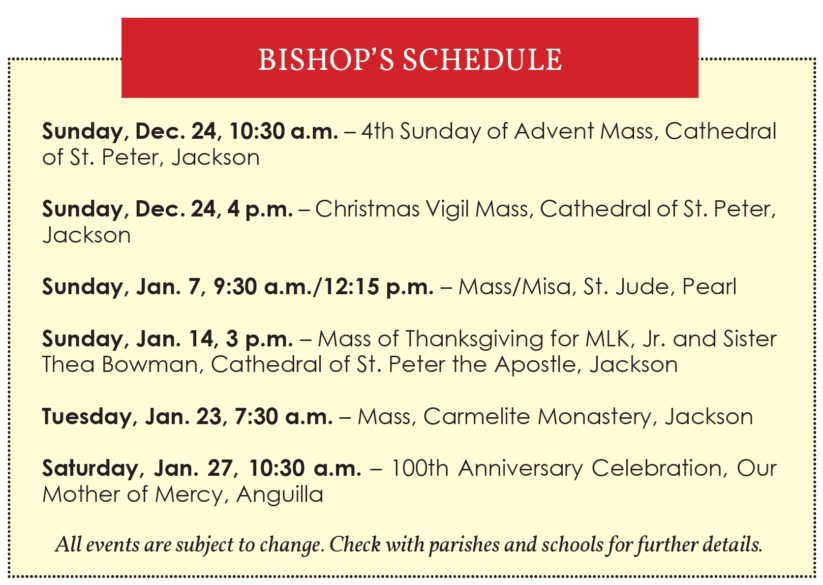
By Bishop Joseph R. Kopacz, D.D.
“Late have I loved you, O Beauty ever ancient, ever new, late have I loved you! You were within me, but I was outside, and it was there that I searched for you. In my unloveliness I plunged into the lovely things which you created. You were with me, but I was not with you. Created things kept me from you; yet if they had not been in you, they would have not been at all. You called, you shouted, and you broke through my deafness. You flashed, you shone, and you dispelled my blindness. You breathed your fragrance on me; I drew in breath and now I pant for you. I have tasted you, now I hunger and thirst for more. You touched me, and I burned for your peace.”
These awe-filled words of St. Augustine from Book 10 of his Confessions are indeed ever ancient and ever new. They are an echo of the voices who have summoned us to prepare a way for the Lord, the eternal beauty of whom Augustine gushes. Isaiah and St. John the Baptist on behalf of the living God, have called and shouted to break through our deafness. Though them God flashes, shines and dispels our blindness.
Both prophets in extraordinary ways bring us into the presence of the light of the world, Jesus Christ, the Son of God once again this Christmas. The words of the prophet Isaiah are the ancient origin of the liberating experience of St. Augustine nearly a millennium later.
“The Spirit of the Lord is upon me because the Lord has anointed me. He has sent me to bring good news to the afflicted, to bind up the brokenhearted, to proclaim liberty to the captives, and release to the prisoners, to announce a year of favor from the Lord.” (61:1-2)

It was and is God’s voice calling individuals and a people out of darkness into the marvelous love of the Savior. Through faith and baptism, we are the Lord’s anointed and thus charged to be bearers of the Good News though the uniqueness of our lives and circumstances of the current generation. The gift is to be shared, and the opportunities are endless.
Next, we turn to Mary, highly favored, the chosen one full of grace who was enfolded in the beauty and power of God’s love and so exclaimed for pure joy.
“My soul proclaims the greatness of the Lord; my spirit rejoices in God, my Savior, for he has looked upon the lowliness of his handmaid.”
God touched her, and she was aflame in his peace. John the Baptist, the final prophet of the Old Testament, and our guide during Advent, who once leapt for joy in the womb of his mother Elizabeth in the moment of Mary’s visitation was perfectly aligned with the long-awaited Messiah as “the voice of one crying out in the desert preparing the way of the Lord.” (John 1:23) This bridge to the Reign of God knew that he was the voice, not the light, not the Word made flesh but the voice summoning people to prepare for God’s eternal beauty and power that was dawning upon them.
St. Paul encouraged the first Christians in Thessalonica to “rejoice always, pray without ceasing and give thanks in all circumstances.” (1Thessalonians 5:16-18)
How is this possible in the face of so much suffering in our age, any reasonable person might ask?
In Advent we dare to hope; we dare to dream and we sing, “O come, O come Emmanuel,” a name that means “God with us” (Matthew 1:23) and for whom nothing is impossible. (Luke 1:37) With St. Augustine may the Lord break through our deafness, dispel our blindness and inspire us to experience deeply his beauty which is pure gift, ever ancient, ever new. Come, Lord Jesus and dispel the darkness of our hearts and minds.
Merry Christmas in the light and love of Jesus Christ.
